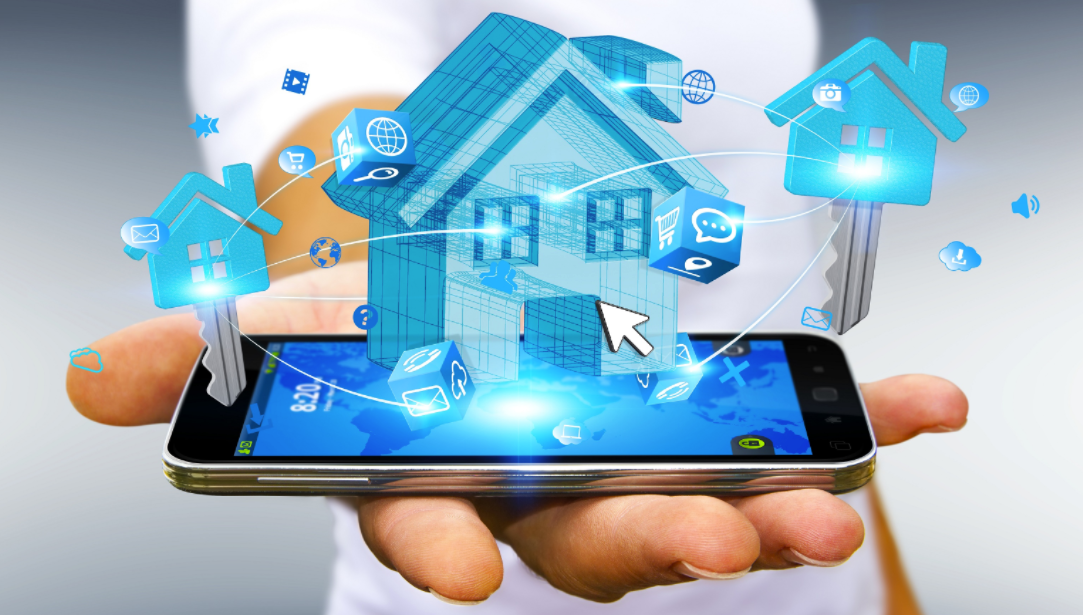Smart home technology makes daily life simpler. If you aren’t home when the kids arrive after school, for instance, you can unlock their door remotely using your smartphone to let them in remotely.
Security cameras allow you to keep an eye on things from your phone, as well as real-time alerts if something suspicious occurs. Furthermore, energy savings devices like occupancy sensors that turn off lights when leaving rooms help cut back electricity usage by saving electricity usage costs.
Improved Energy Efficiency
Intelligent home devices can interact seamlessly to deliver an improved experience for homeowners. A lighting system might, for instance, set a routine that dims and turns on lights throughout the day based on your schedule or when you expect to return home. Smart thermostats may communicate among themselves to learn homeowner behaviors for increased efficiency.
Smart home devices can connect to each other using hubs that act as one node for controlling multiple smart devices, providing homeowners with one centralized node to manage multiple smart home devices. This enables homeowners to avoid the frustrations caused by mismatched devices; for instance, your smart speaker might work perfectly fine with your iPhone but not that of your roommate’s iPhone; Matter, an industry collaboration, is working to address compatibility issues; until then however, smart home technology can help lower energy usage by turning appliances and lighting on and off automatically.
Enhanced Security
Smart home technology not only saves energy and waste, but it can also enhance security. Many devices can be controlled via smartphone – which could pose a security risk should that phone be stolen or compromised. Make sure all of your smart home devices are properly protected with passwords, multifactor authentication or similar measures to safeguard them against theft or hacking.
Smart home sensors can help detect specific threats in the home. Cuddihy and colleagues used motion and door sensors to identify periods of unusual inactivity that might indicate health-related events.
Smart technology is enabling novel applications for Covid-19 detection and response, such as smart thermostats with humidity sensors to monitor air quality and smart doorbells enabling users to screen visitors against one of the core Covid-19 indicators before admitting them into their homes.
Increased Convenience
Smart home devices provide home owners with many conveniences, from remote monitoring and customization to wellness and safety check-ins. Users can control thermostats, lighting, TVs and more via smartphone apps or voice command speakers such as Google Home.
Smart devices can also be programmed to follow specific schedules or respond to commands based on individual preferences, for instance a doorbell linked with a video camera can show who’s at your front door while also enabling video chat between people outside.
Smart technology can also benefit those with mobility or disability issues by making appliances and systems easier to access without manual intervention. Unfortunately, its initial stages remain complex for those without strong technical experience.
Improved Health
Smart home technology can assist those living with chronic conditions and disabilities by monitoring health-related outcomes. Such technologies can remind patients to take their medications or follow their physician’s diet plan, monitor heart rate and blood pressure levels, notify family caregivers in case of falls, high temperatures or notify family members if a loved one requires hospital care.
However, technology must be unobtrusive and easy to use; older adults must understand how these devices function before trusting that it will protect their information in a secure manner. Tech companies must implement efficient security protocols and offer timelines when they will support hardware with software updates – both issues will help facilitate adoption of connected home healthcare technology. [4]
Improved Education
Smart home technology can assist in the education of both children and adults alike. For example, connected appliances can learn a homeowner’s schedule so they automatically switch off lights or adjust heat/cooling units when sleeping or away at work.
Smart homes also provide comprehensive reports about energy consumption for the household, enabling homeowners to identify energy waste and make necessary changes that could lower their bills.
Though Smart home technologies offer numerous advantages, some homeowners remain wary about data privacy and security. Others find new tech difficult to use or may lack patience with it. Manufacturers are working hard to reduce perceived complexity and enhance user experience as well as develop systems requiring less hardware installation – perfect for people starting small and testing the waters.




